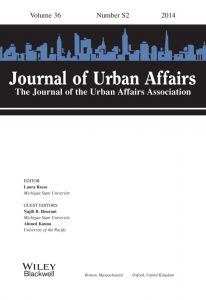status networking sites
![]() There has been recent news coverage on the relationship between social status and social networking site usage. CNN asked “Does your social class determine your online social network?”
There has been recent news coverage on the relationship between social status and social networking site usage. CNN asked “Does your social class determine your online social network?”
“Is there a class divide online? Research suggests yes. A recent study by market research firm Nielsen Claritas found that people in more affluent demographics are 25 percent more likely to be found friending on Facebook, while the less affluent are 37 percent more likely to connect on MySpace.”
And NPR reports that “Facebook, MySpace Divide Along Social Lines.”
“Social media researcher danah boyd [has] spoken to teens all over the country about their use of social media. She thinks the online social world is dividing up — just like the real world — into neighborhoods.”
I choose these quotes purposely to illustrate that CNN decided to report on this issue when a market research firm found what was already known to social scientists, such as danah boyd or Eszter Hargittai. NPR correctly focuses on boyd’s research, however, their story comes after CNN’s, and well after social scientists identified the trend.
![]() Beyond this point, an argument that I previously made on this blog is that we are seeing a more post-structural, new-media, digital divide. In addition to the problematic of access to the internet, there is the issue of how different groups learn to use the web. Boyd states in the NPR story,
Beyond this point, an argument that I previously made on this blog is that we are seeing a more post-structural, new-media, digital divide. In addition to the problematic of access to the internet, there is the issue of how different groups learn to use the web. Boyd states in the NPR story,
“Young people — and for the most part adults as well — don’t really interact online with strangers. They talk to people they already know. You have environments in which people are divided by race, divided by class, divided by lifestyle. When they go online they are going to interact in the same way.”
Thus, the wealthy are more likely to network with others of higher status, creating a situation where digital socialization mirrors, perpetuates and solidifies old status hierarchies. Following sociologist Pierre Bourdieu, it might be the case that those of high status are learning to network with each other, making themselves distinct in the way they use new media. Does this serve as a counter-argument to those that proclaim the democratizing potential of the internet? ~nathan
![]() Facebook, MySpace Divide Along Social Lines
Facebook, MySpace Divide Along Social Lines
![]() The Intersecting Roles of Consumer and Producer: A Critical Perspective on Co-production, Co-creation and Prosumption
The Intersecting Roles of Consumer and Producer: A Critical Perspective on Co-production, Co-creation and Prosumption
Add to: Facebook | Digg | Del.icio.us | Stumbleupon | Reddit | Blinklist | Twitter | Technorati | Yahoo Buzz | Newsvine





This also begs the question–what is being produced by prosumers? Are they producing (for example) class, status, or power in addition to the “content” provided by online social media. How does that impact participation and the content being produced?
Keri
keri-exactly right. bourdieu stated that consumption always is productive in that we produce our habitus and reproduce status hierarchies. your point is that this is highly applicable to prosumption online. the very ways people prosume are indicative of, and serve to perpetuate, class distinction. ~nathan